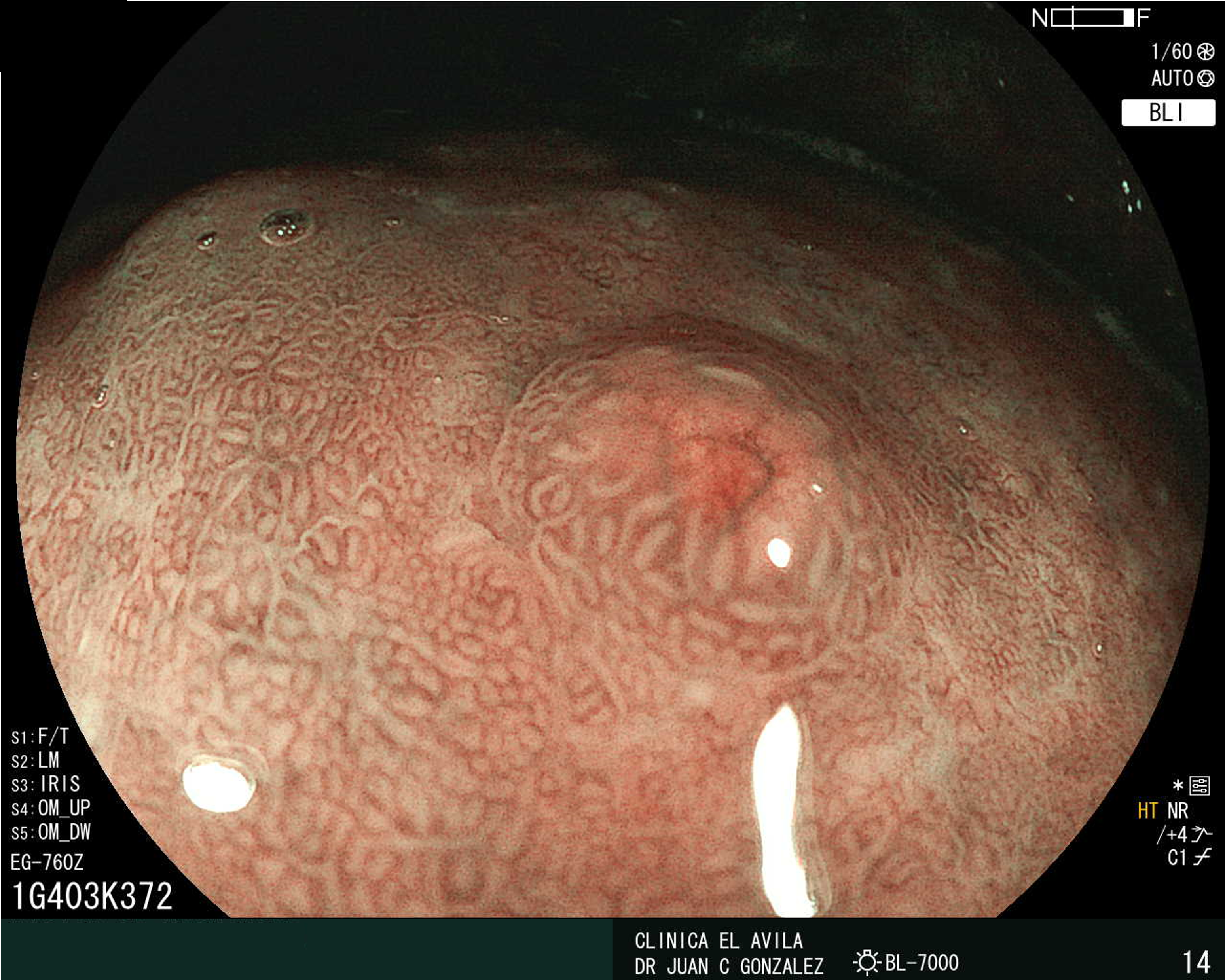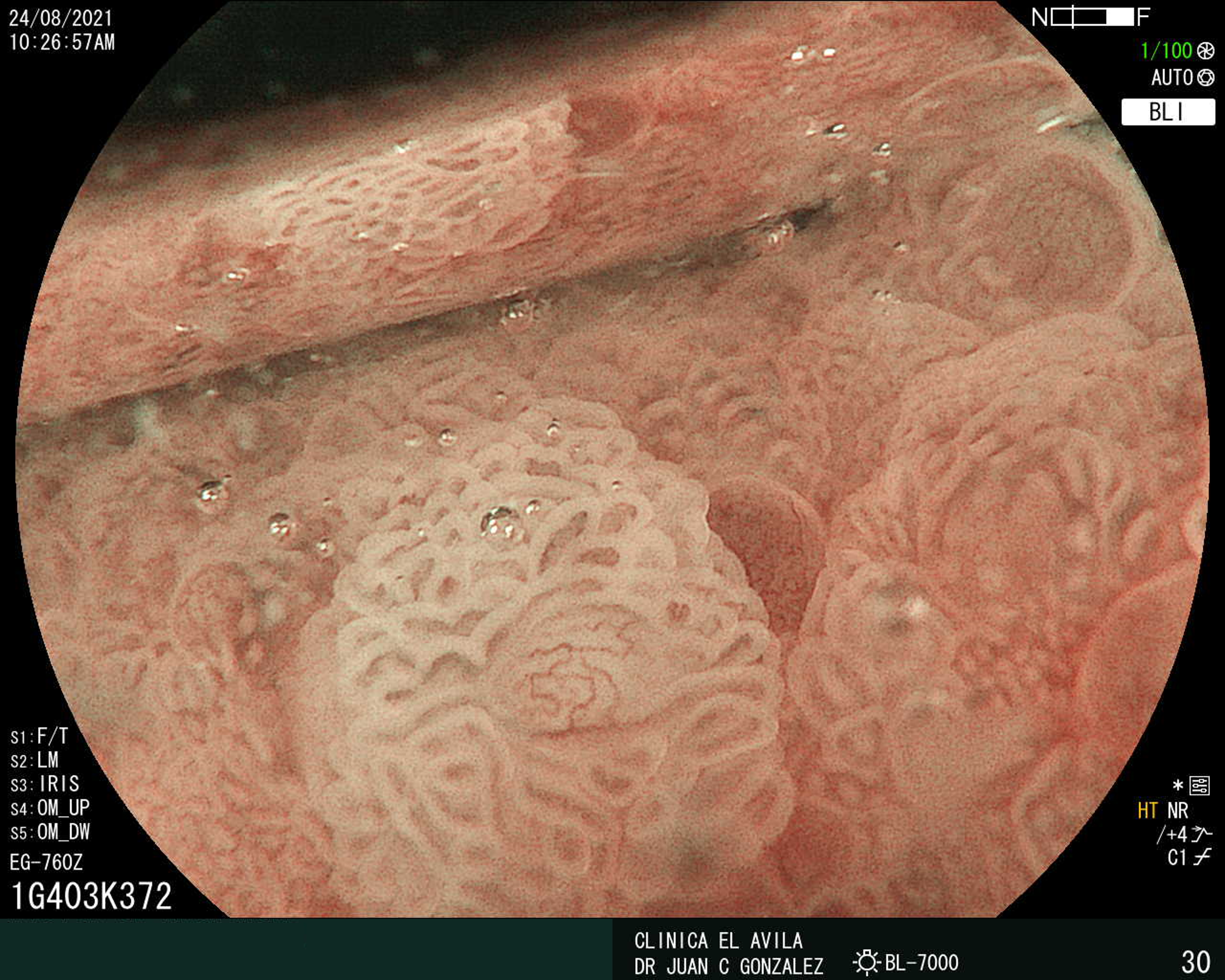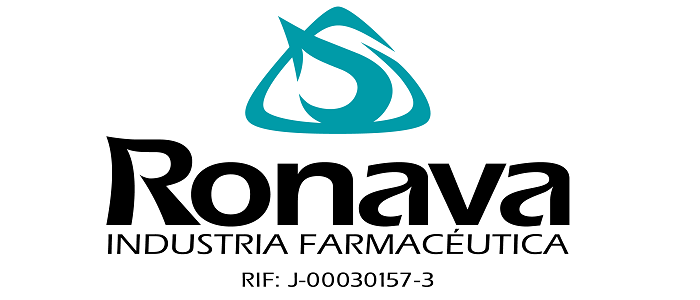Biomarcadores en enfermedad inflamatoria intestinal: pruebas de laboratorio, marcadores biológicos serológicos y fecales
Resumen
Palabras clave
Texto completo:
PDFReferencias
Fukinaga Shuhei, Kuwaki Kotaro, Mitsuyama Keiichi et al. Detection of calprotectin in inflammatory bowel disease: Fecal and serum levels and immunohistochemical localization. International J of Molecular Medicine 2018; 41:107-118.
Gisbert JP, González-Lama Y, Maté J. Role of biological markers in inflammatory bowel disease. Gastroenterol Hepatol 2007;30 (3):117—129
Cioffi M, Rosa AD, Serao R et al. Laboratory markers in ulcerative colitis: current insights and future advances. World J Gastrointest Pathophysiol 2015; 6:13-22
Mendoza JL, Abreu MT. Biological markers in inflammatory bowel disease: Practical consideratios for clinicians. Gastroenterologie Clinique et Biologique 2009;33: S158-S173.
Peyrin-Biroulet L, Gonzalez F, Dubuquoy L et al. Mesenteric fat as a surce of C reactive protein and as a target for bacterial translocation in Crohn´s disease. Gut 2012;61: 78-85
Travis SP, Farrant JM, Ridketts C et al. Predicting outcome in severe ulcerative colitis. Gut 1996; 38:905-910
Danik JS, Ridker PM. Genetic determinants of C reactive protein. Curr Atheroscler Rep 2007; 9: 195-203.
Vermeire S, Van Assche G, Rutgeerts P. C reactive protein as a marker for inflammatory bowel disease. Inflamm Bowel Dis 2004; 10: 661-665.
Florin TH, Paterson EW, Fowler EV et al. Clinically active Crohn´s disease in the presence of a low C-reactive protein. Scand J Gastroenterol 2006;41: 306-11
Shine B, Berghouse L, Jones JE, Landon J. C-reactive protein as an aid in the differentiation of functional and infammatory bowel disorders. Clin Chim Acta 1985; 148:105-9
Moran A, Jones A, Asquith P. Laboratory markers of colonoscopic activity in ulcerative colitis and Crohn´s colitis. Scand J Gastroenterol 1995; 30:356-60)
Solem CA, Loftus Jr EV, Tremaine J et al. Correlation of C-reactive protein with clinical, endoscopic, histologic, and radiographic activity in inflammatory bowel disease. Inflamm Bowel Dis 2005; 11:707-12
López Morante AJ, Sáez-Royuela F, Yuguero del Moral L et al. The usefulness of reactive protein C in managing patients with ulcerative colitis and Crohn´s disease. Rev Es Enferm Dig 1993; 83:5-9.
González-Lama Y, Vera I, Calvo M, et al. Markers of the course of inflammatory bowel disease treated with inmunomodulators or biological agents. Gastroenterol Hepatol 2010;33(6):449-60.
Travis Sp, Farrant JM, Ricketts C et al. Predicting outcome in severe ulcerative colitis. Gut 1996;38: 905-10
Louis E, Vermeire S, Rutgeerts P et al. A positive response to infliximab in Crohn´s disease: association with a higher systemic inflammation before treatment but not with -308TNF gene polymorphism. Scand J Gastroenterol 202; 37:808-24
Schreiber S, Rutgeers . Fedorak RN et al. A randomized placebo-controlled trial of certolizumab pegol (CDP870) for treatment of Crohn´s disease. Gastroenterology 2005; 129: 807-18
García Herola A, Nos P, Ponce García K. Anticuerpos frente al citoplasma de los neutrófilos (ANCA) en la enfermedad inflamatoria crónica intestinal. Gastroenterol Hepatol 2000; 23:16-23)
Gisbert JP, Gomollón F, Maté J et al. Papel de los anticuerpos anti-citoplasma de los neutrófilos (ANCA) y anti-Saccaromyces cerevisiae (ASCA) en la enfermedad inflamatoria intestinal. Gastroenterol Hepatol 2003;26:312-324)
Sandborn WJ, Loftus Jr EV, Colombel JF et al. Evaluation of serologic disease markers in a population-based cohort of patient with ulcerative colitis and Crohn´s disease. Inflamm Bowel Dis 2001; 7:192-201
Amre DK, Lu SE, Costea F et al. Utility of serological markers in predicting the early occurrence of complications and surgery in pediatric Crohn´s disease patients. Am J Gastroenterol 2006; 101:645-52.
Fleshner PR, Vasiliauskas EA, Kam LY et al. High level perinuclear antineutrophil cytoplasmic antibody (pANCA) in ulcerative colitis patients before colectomy predicts the development of chronic pouchitis after ileal pouch-anal anastomosis. Gut 2001; 49:671-7.
Olives JP, Breton A, Hugot JP et al. Antineutrophil cytoplasmic antibodies in children with inflammatory bowel disease: Prevalence and diagnostic value. J Pediatr Gastroenterol Nut 1997; 25:142-8
Rowe WA. EMedicine.Medscape.com. Inflammatory Bowel Disease. Update oct 18, 2017.
Däbritz Jan,Musci, J, Foell D. Diagnostic utility of faecal biomarkers in patients with irritable bowel syndrome. World J Gastroenterol. Jan 14, 2014; 20(2): 363-375
Poullis A, Foster R, Mendall MA et al. Proton pump inhibitors are associated with elevation of faecal calprotectin and may affect specificity. Eur J Gastroenterol Hepatol 2003;15: 573-4.
Waugh N, Cummins E, Royle P et al. Faecal calprotectin testing for differentiating amongst inflammatory and non-inflamatory bowel diseases: systematic review and economic evaluation. Health technology Assessment. 2013; (55): 1-212
Waugh N, Cummins E, Royle P et al. Faecal calprotectin testing for differentiating amongst inflammatory and non-inflamatory bowel diseases: systematic review and economic evaluation. Health technology Assessment. 2013; (55): 1-212
Poullis A, Foster R, Northfield TC et al. Review article: Faecal markers in the assessment of activity in inflammatory bowel disease. Aliment Pharmacol Ther 2002; 16:675-81
Roseth AG, Fagerhol MK, Aadland E et al. Assessment of the netrophil dominating protein calprotectin in feces. A methodologic study. Scand J Gastroenterol 1992; 27:793-8
Cossta F, Mumolo MG, Vellini M et al. Role of faecal calprotectin as non- invasive marker of intestinal inflammation. Dig Liver Dis 2003;35:642-7.
Henderson P, Casey A, Lawrence SJ, Kennedy NA et al. The diagnostic accuracy of fecal calprotectin during the investigation of suspected pediatric inflammatory disease. Am J Gastroenterol 2012; 107:941-9
Ricanek P, Brackmann S, Perminow G, et al. IBSEN II Study Group: Evaluation of disease activity in IBD at the time of diagnosis by use of clinical, biochemical, and fecal markers. Scand J Gastroenterol 2011; 46: 1081-1091.
Jones J, Loftus EV Jr, Panaccione R et al. Relationships between disease activity and serum and fecal biomarkers in patients with Crohn´s dosease. Clin Gastroenterol Hepatol 2008; 6: 1218-1224.
Lin JF, Chen JM, Zuo JH et al. Meta-analysis: fecal calprotectin for assessment of inflammatory bowel disease activity. Inflamm Bowel Dis 2014; 20: 1407-1415.
SipponenT, Kärkkäinen P, Salvilahti E et al. Correlation of fecal calprotectin and lactoferrin with an endoscopic score for Crohn´s disease and histological findings. Aliment Pharmacol Ther 2008; 28: 1221-1229
Chew TS, Mansfield JC. Can faecal calprotectin predict relapse in inflammatory bowel disease: a mini review. Frontline Gastroenterol. 2018;9(1):23-28.
Elham A. Hassan, Haidi K. Ramadan, Ali A. Ismael, et al. Noninvasive biomarkers as surrogate predictors of clinical and endoscopic remission after infliximab induction in patients with refractory ulcerative colitis. Saudi J Gastroenterol. 2017 Jul-Aug; 23(4): 238–245
D'Haens G, Ferrante M, Vermeire S et al.. Faecal calprotectin is a surrogate marker for endoscopic lesions in inflammatory bowel disease. Inflamm Bowel Dis. 2012; 18:2218–24.
Zittan E, Kelly OB, Kirsch R, Milgrom R, Burns J, Nguyen GC, et al. Low Fecal Calprotectin Correlates with Histological Remission and Mucosal Healing in Ulcerative Colitis and Colonic Crohn's Disease. Inflamm Bowel Dis. 2016; 22:623–30
Tursi A, Elisei W, Giorgetti G, Picchio M, Brandimarte G. Rapid fecal calprotectin correlates with clinical and endoscopic severity of inflammatory bowel diseases. Scand J Gastroenterol. 2013; 48:1359–60
DOI: http://dx.doi.org/10.61155/gen.v72i4.471
IMÁGENES GEN
| Figura 1. Tumor Neuroendocrino Gástrico | Figura 2. Hiperplasia de Células Neuroendocrinas en estómago |
 |  |
 |  |  |
ISSN: 0016-3503 e-ISSN: 2477-975X










